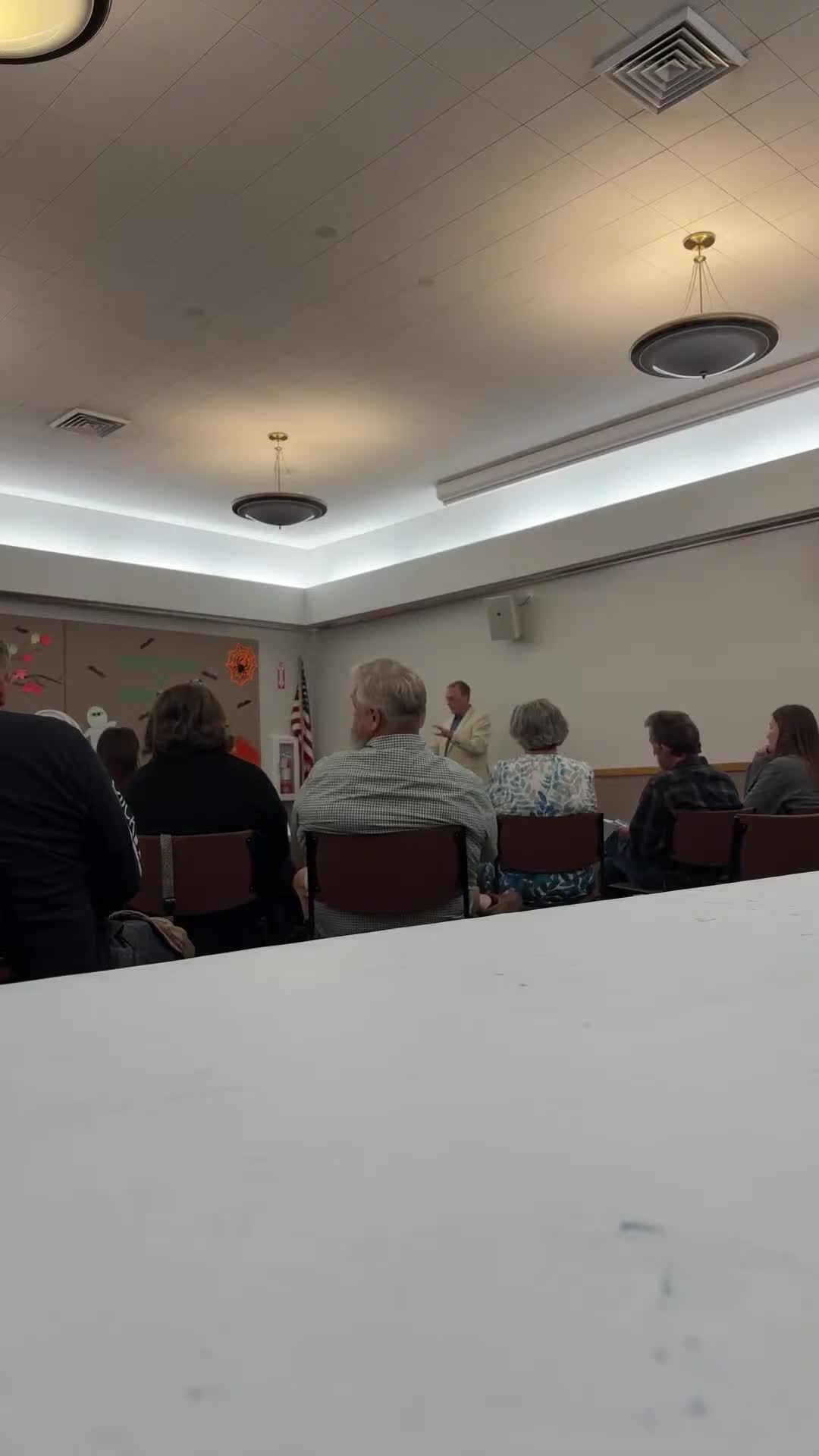Split public hearing in Washington County as supporters and opponents debate repeal of Utah—s Proposition 4
Get AI-powered insights, summaries, and transcripts
Subscribe
Summary
Washington County held a public hearing on efforts to repeal Proposition 4, the 2018 ballot measure that created Utah—s independent redistricting commission, drawing roughly an hour of two-minute public comments for and against the repeal.
Washington County held a public hearing on the proposed repeal of Proposition 4, the 2018 ballot measure that created an independent redistricting commission. Dozens of residents provided two-minute statements for roughly 60 minutes; the meeting was conducted as a public-comment hearing and no formal votes or legislative actions were taken.
Supporters of the repeal framed the issue as one of constitutional assignment of duties and electoral accountability. The meeting organizer, who opened the hearing, said: "Section 9, article 1 of the Utah State Constitution read, the legislature shall divide the state into congressional, legislative, and other districts accordingly," and argued Proposition 4 "created an unelected commission to administer duties specifically granted to the people's representatives in the legislature and therefore violates the Utah State constitution." (Moderator, 00:01:36)
Opponents said Prop 4 reflected a voter-driven, nonpartisan reform to reduce gerrymandering. Cindy Hanson, who identified herself as a Washington County voter, urged listeners "do not sign to undo what the voters have already said they wanted and have been waiting for for 7 years." (Cindy Hanson, 00:04:57) Jill Stevens said Prop 4 was "not a partisan stunt" and described the 2018 petition drive as "thousands of Utahns, Republicans, Democrats, Independents" collecting signatures.
Speakers on both sides also raised campaign-finance and legal-history points. Jeffrey Leifman noted out-of-state money on multiple sides of the issue and asked commenters to accept the result of prior votes. Others cited recent Utah Supreme Court rulings: William Henry Sherritt said several recent state Supreme Court decisions had found legislative actions unconstitutional, and multiple commenters referenced court orders and litigation that followed the 2018 measure.
Several speakers described local impacts and broader civic concerns. Jorge Pineda (who identified himself as a Washington County Democrat) invoked Article I, Section 2 of the Utah Constitution, saying "All political power is inherent to the people," and tied representation to local needs, noting that in Washington County "20% of children are food insecure." (Jorge Pineda, 00:06:45)
Not all testimony aligned with a single argument. Chad Benyon, who said he served on a reapportionment committee in 2001, argued that "there is no such thing as an independent commission" and that appointive bodies are less accountable than elected officials. Other speakers emphasized procedural concerns about signature-gathering and the accuracy of information presented to voters during petition drives.
County Commissioner Celeste Myers spoke from her role in local government, disputing claims that the process excludes women and noting that women currently serve in local elected office. She said the town-hall and county processes she participates in are inclusive of women and minorities.
The meeting concluded with a short question-and-answer period in which the moderator clarified that the hearing is a public-comment forum, not a court proceeding, and that minutes would be presented to the legislature for consideration. When asked whether written comments could be submitted, the moderator said a website and additional meetings are available and offered to receive written comments personally.
No formal motion, vote, or committee direction was recorded during the hearing. Participants repeatedly urged civic participation: both sides called for voters to be allowed to decide reforms in future elections, with opponents of repeal describing a desire to defend a voter-approved change and proponents of repeal arguing for legislative responsibility and ballot access to revisit the constitutional arrangement.
For readers: the key authorities and legal references mentioned repeatedly during testimony were the Utah State Constitution (Article I, Sections 2 and 9), Proposition 4 (2018), and orders from the Utah Supreme Court. The hearing was informational and did not produce a binding policy decision; any change to Proposition 4 would require a separate petition and ballot process, and commenters repeatedly discussed the likely legal and political follow-up.
